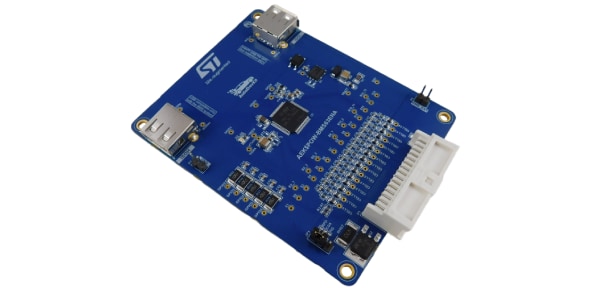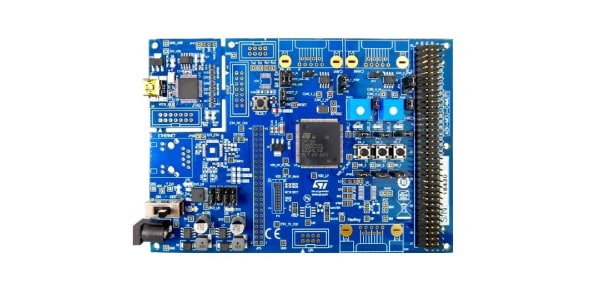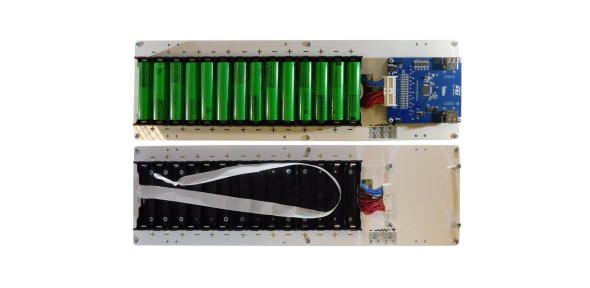Battery Management Systems (BMS) improve the lifecycle, health and safety of power storage systems in electric vehicles
Battery Management Systems (BMS) improve the lifecycle, health and safety of power storage systems in electric vehicles
A BMS measures current, voltage and temperature in critical points of the battery pack and sends that information to an MCU to communicate with other vehicle systems in order to share the state of charge (SoC) and state of health (SoH) estimates for purposes of service.
BMS solution components
With our very flexible kit you can built 3 different BMS topologies (LV single node, centralized access, dual access ring), combining and adding the boards you need to set up your BMS application.

Evaluation board
Battery management system module based on L9963E
Battery management system (BMS) evaluation board that can handle from 1 to 31 Li-ion battery nodes.

Evaluation board
SPI to isolated SPI dongle based on the L9963T transceiver
SPI to isolated SPI dongle used to convert SPI signals in isolated SPI signals

Discovery board
MCU discovery board for SPC5 Chorus 4M automotive microcontroller
Discovery board based on a 4-Mbyte SPC58 automotive microcontroller with CAN transceivers

Battery holder
Battery holder for cylindrical batteries and battery management system node
Battery holder for cylindrical batteries and battery management system node for automotive applications
Recommended resources

AutoDevKit Studio for 32-bit PowerPC architecture MCUs
AutoDevKit Studio for 32-bit PowerPC architecture MCUs
Inside the AutoDevKit ecosystem and our development platform STSW-AUTODEVKIT, you can find demos to evaluate the BMS kit in three different configurations.
Each demo software will determine the State of Charge (SoC) and the State of Health (SoH) of the battery pack, allowing efficient cells balancing and extending the battery’s lifespan to enable better performance.

AEK-POW-BMS63EN or the critical art of making battery management solutions more accessible
AEK-POW-BMS63EN or the critical art of making battery management solutions more accessible
If we had to summarize the spirit that drives the AEK-POW-BMS63EN development board in one word, it would be accessibility. Battery management applications are notoriously challenging, and building one…
Getting started with AutoDevKit battery management system (BMS) evaluation kit
For a detailed description on how to use the kit and the related software, please refer to user manual UM3185.
Whitepaper
This whitepaper explores the challenges of designing efficient battery management systems and eliminating consumer range anxiety issues.